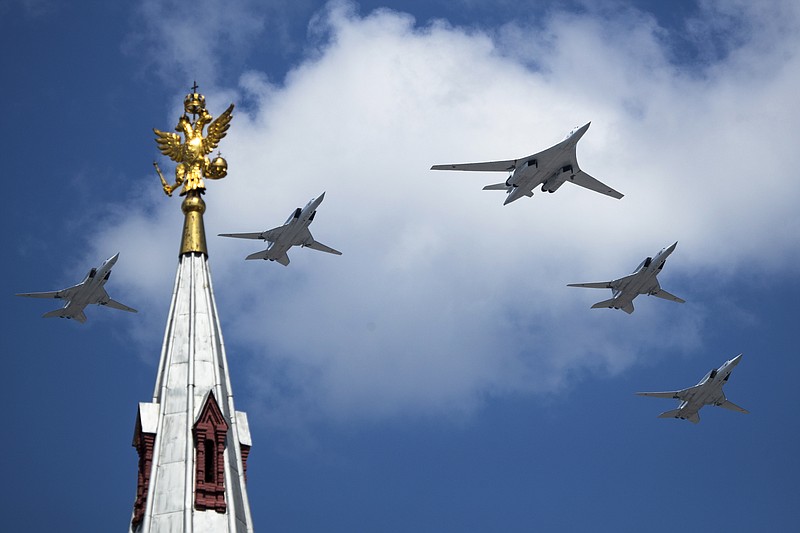WASHINGTON -- The United States and Russia inched closer Tuesday to a deal to extend their last remaining arms-control pact, after U.S. threats to allow the deal to expire early next year.
The two sides signaled they are ready to accept compromises to salvage the New START treaty just two weeks ahead of the U.S. presidential election in which President Donald Trump faces a challenge from former Vice President Joe Biden, whose campaign has accused Trump of being soft on Russia.
After the White House last week rejected a proposal from the Kremlin to keep the accord alive, calling it a "nonstarter," Moscow said Tuesday that it could agree to a U.S.-proposed freeze on each side's nuclear warheads and to extend the treaty by one year. In response, the U.S. said it was ready for a quick deal.
In a statement, Russia's Foreign Ministry outlined the shift in Moscow's position after last week's apparent breakdown in the talks on New START, which expires in February. It said Russia is prepared for a deal if the U.S. agrees to put forward no additional demands.
The State Department then welcomed the Russian offer.
"We appreciate the Russian Federation's willingness to make progress on the issue of nuclear arms control," department spokeswoman Morgan Ortagus said. "The United States is prepared to meet immediately to finalize a verifiable agreement. We expect Russia to empower its diplomats to do the same."
There was no immediate indication of when the two sides might meet to conclude an agreement or what form it might take.
New START was signed in 2010 by then-President Barack Obama and then-President Dmitry Medvedev. The pact limits each country to no more than 1,550 deployed nuclear warheads and 700 deployed missiles and bombers, and envisages sweeping on-site inspections to verify compliance.
After both Moscow and Washington withdrew from the 1987 Intermediate-Range Nuclear Forces Treaty last year, New START was the only remaining nuclear arms control deal between the two countries.
Russia had offered to extend it without any conditions, while the Trump administration had initially insisted that it could only be renewed if China agreed to join. China has refused to consider the idea.
The U.S. recently modified its stance and proposed a one-year extension of the treaty, but said it must be coupled with the imposition of a broader cap on nuclear warheads. The cap would cover warheads attached to battlefield weapons, which are not limited by New START treaty because it only restricts strategic nuclear arsenals.
Last week, Russian Foreign Minister Sergey Lavrov argued that Russia couldn't agree to the U.S. proposal to limit tactical nuclear weapons alongside nuclear warheads that arm strategic missiles and bombers until Washington agreed to withdraw its nuclear warheads from Europe.
Lavrov also noted that Moscow wouldn't accept the U.S. demand to have intrusive verification measures like those that existed in the 1990s when inspectors were positioned at missile factories. Moscow appears still to resist the deeper inspections, which aren't envisaged by the New START.
Daryl Kimball, executive director of the Arms Control Association in Washington, said "a one-year politically binding warhead freeze could be a useful confidence-building measure if combined with a one-year New START extension, with the option of an additional extension adding up to a total of five years."
"It would be a step in the right direction that would avert, for now, an all-out arms race," Kimball said, adding that it would give Washington and Moscow more time for further talks on a new deal to cut their nuclear arsenals.
Although Trump favors nuclear arms control, he has called New START flawed and unfavorable to the U.S. Last year, he withdrew the U.S. from the INF treaty with Russia, and began engaging with the Russians on the future of New START.
Biden, who was vice president when New START was negotiated during the Obama administration and ratified by the Senate, has said he wouldn't hesitate to agree to Putin's original proposal for a five-year extension of New START. That would be followed by negotiation of a follow-on deal.
Information for this article was contributed by Robert Burns and Daria Litvinova of The Associated Press.


